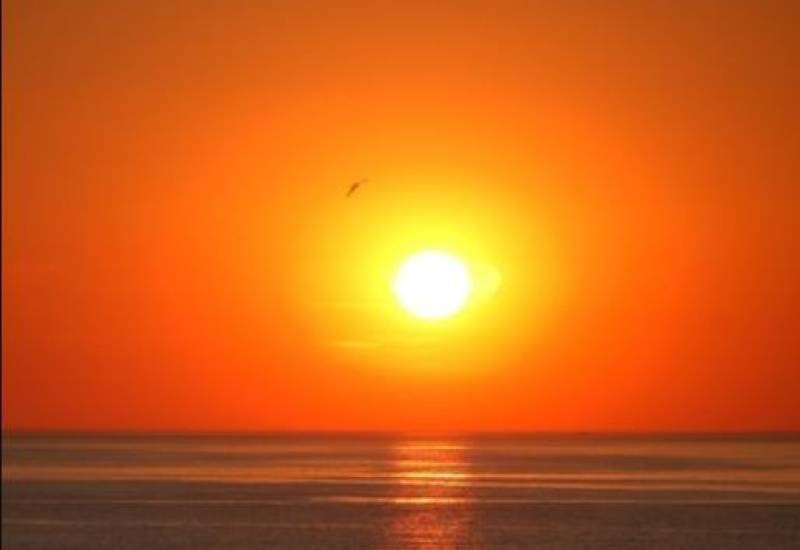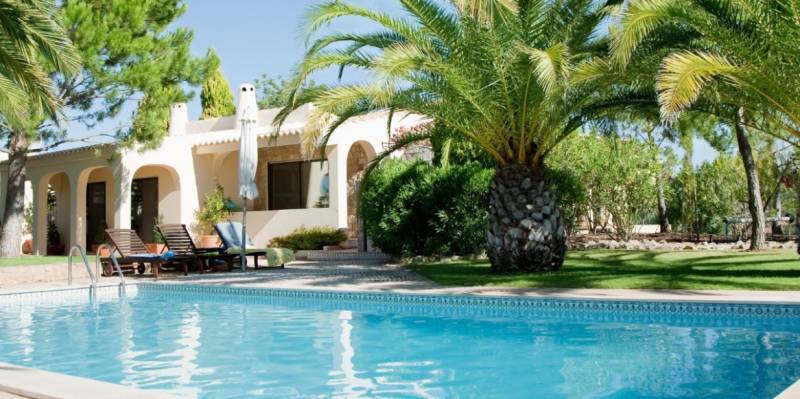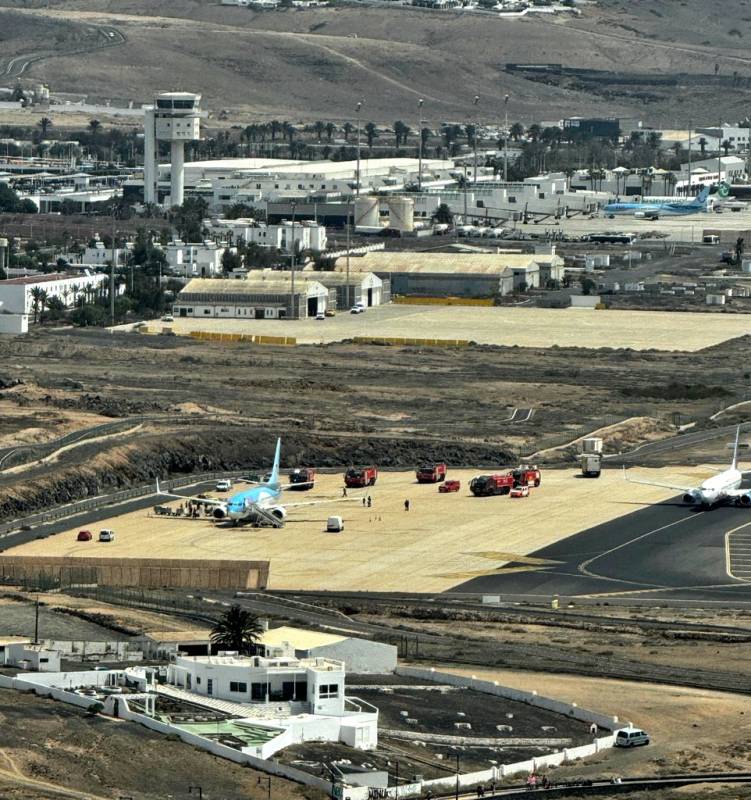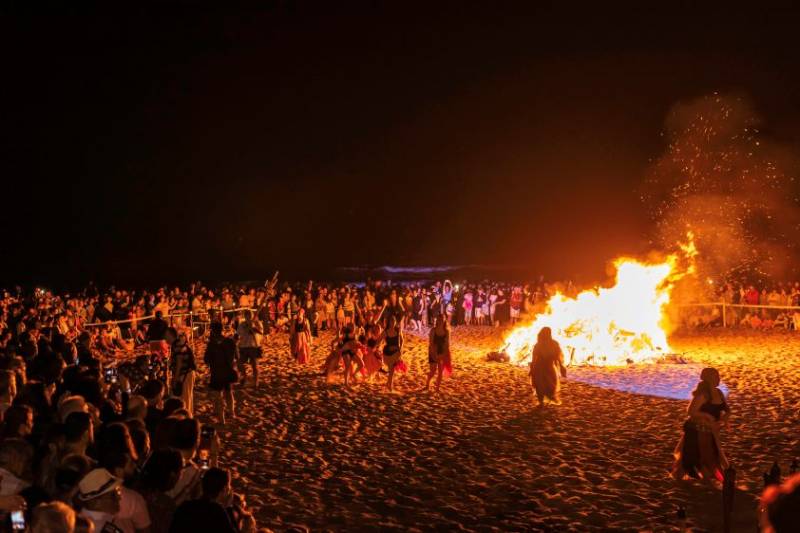

- EDITIONS:
 Spanish News Today
Spanish News Today
 Murcia Today
Murcia Today
 Alicante Today
Alicante Today
Ecologists raise alarm over coastal abuses in Spain's Black Flags report
Ecologists' annual Black Flags report emphasises occupation of public land for private interests
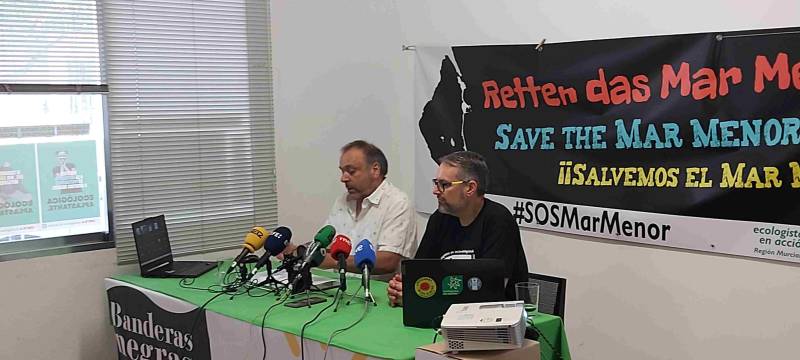
Ecologístas en Acción presenting the report
This year’s Black Flags report, which highlights the most serious (but not all) environmental abuses around the coast of Spain, was published this week by the NGO Ecologístas en Acción.
They have flagged a total of 48 places, two per province and/or autonomous city, one for pollution and the other for bad environmental management.
These include 13 for urban development of the coast and occupation of maritime-terrestrial public domain land (DPMT); 12 for spillages, sanitation system deficiencies and serious wastewater treatment problems; 9 for impact on biodiversity; 5 for accumulation of rubbish, plastic waste and microplastics; 4 for work on ports or unnecessary or badly managed coastal defence; 3 for chemical contamination; 1 for damage to historical and cultural heritage on DPMT; and 1 for geological storage of carbon dioxide causing serious environmental and social harm.
Public land taken by businesses and rich people
One of the worst problems the ecologists found is appropriation and occupation of DPMT - “a very widespread practice by wealthy individuals and businesses”.
“Despite its flagrant illegality, often some administrations do not enforce the, already insufficient, Coast Law,” they assert.
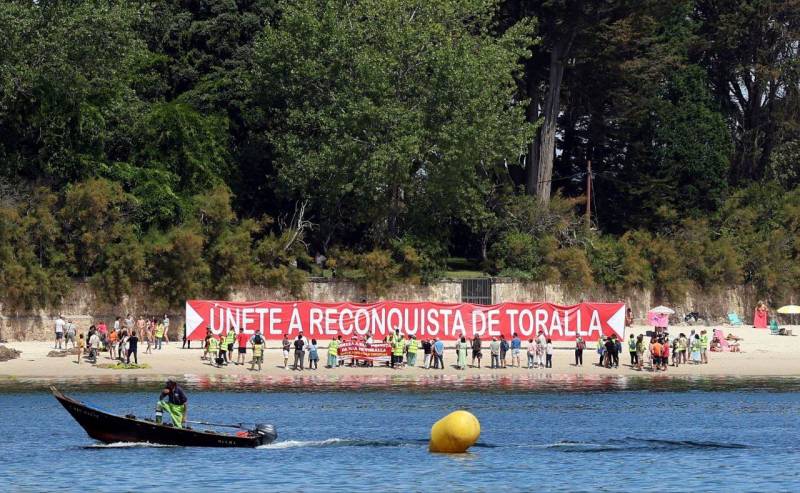
Protest over access to public land on Toralla
For example, they accuse the owners of the private urbanisation on the Isla Toralla in Vigo of refusing, with the consent of the authorities, public access not only to the coast but also the interior of the island.
Other cases involve “shadow privatisation” of public spaces by granting concessions to private companies for business uses which restrict free access, such as the Isla Pancha, in Ribadeo (Lugo), which is also part of the EU Natura 2000 network.
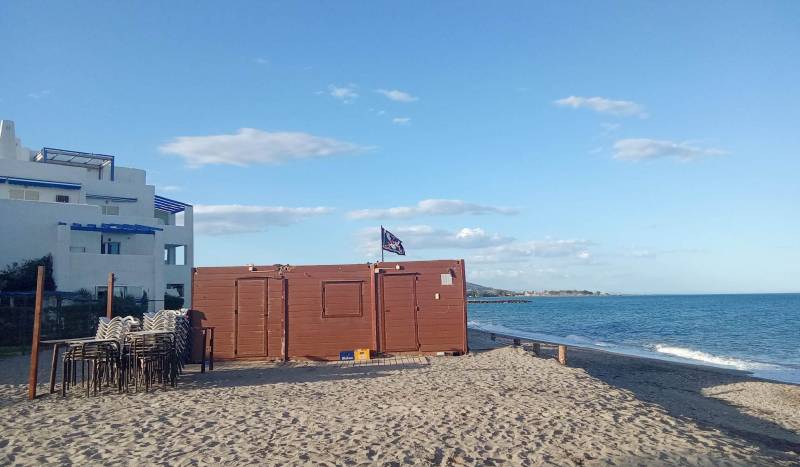
Housing and beach bar on public land in Vera
The coast is littered with improper uses of public space, even in natural parks, from car parks in the Dunas de Liencres and Costa Quebrada (Cantabria), to beach bars in Andalucía, which are supposed to be temporary installations but are increasingly invading DMPT, even building basements and effectively privatising a public space.
Overtourism
Overtourism, with luxury resorts and exclusive leisure facilities, is behind many occupations of public space.
In the Canary Islands, the ecologists accuse the company restoring the Hotel RIU Palace Tres Islas in the Corralejo dunes (in the municipality of La Oliva on Fuerteventura) of not respecting the conditions of its concession, which not only forbade extending the facilities but has also expired.
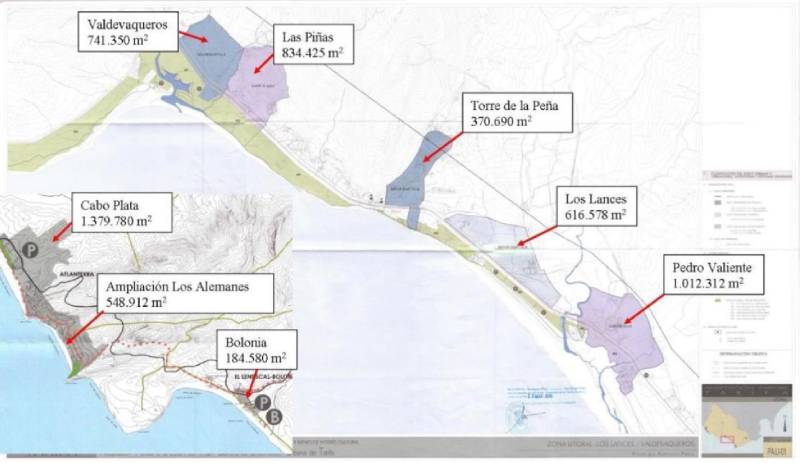
Planned urbanisations on coast in Tarifa
In Andalucia, Tarifa town hall keeps authorising more urbanisations in an already totally overdeveloped area by the Estrecho natural park on the slope of the Sierra Plata.
Buildings and roads on the coast cause loss of sand from beaches, such as La Antilla in Huelva.
In that area and practically all around the coast, cleaning of beaches with heavy machinery is significantly affecting wildlife, especially nesting coastal birds like the Kentish plover.
Among the problems resulting from urban development in floodable areas, Ecologístas en Acción were shocked that practically all the beaches affected by debris from the DANA flood in Valencia last October were still awarded Blue Flags this year.
Another example is destruction of habitats like El Salar de los Canos wetland in Almería, or in Cataluña, which the Ministry for the Ecological Transition flagged as the region with the most pressure on its coast.
Along the final stretch of the River Red d’en Felui in Girona, Llança town hall aims to develop an area that is floodable and of great environmental value on the doorstep of Cap de Creus natural park.
Opposition leader Feijóo fingered
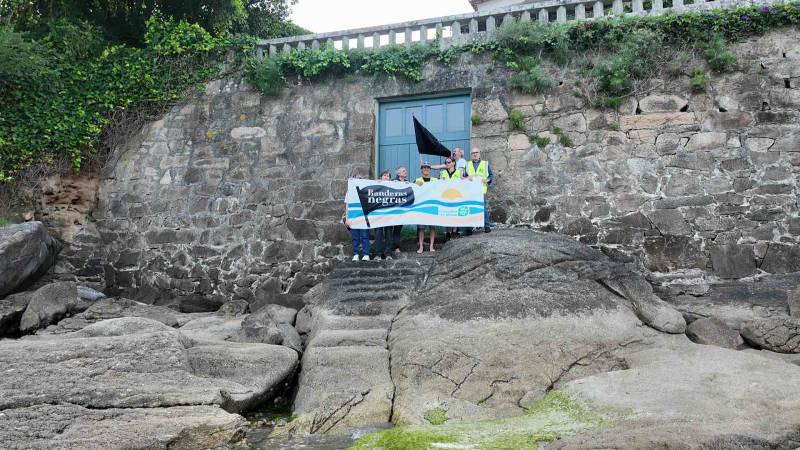
The private access to the beach on Playa O Con
One of the most notable black flags this year is for occupation of public coastal land by Alberto Nuñez Feijóo and his wife on Playa de O Con in Moaña (Pontevedra), where the state Costas department is trying to reclaim a private access path from her house to the beach.
Although the area occupied is not as extensive as other cases, it is particularly relevant since the Feijóo is the ex-president of the Galician regional government and current national president of the Partido Popular (PP).
The Galician authorities, governed by the PP, have just been awarded powers to manage uses of the coast by the state, despite considerable controversy and a court battle.
According to Ecologístas en Acción, the fact that Feijóo and his wife have usurped DPMT land for their personal benefit confirms fears that the demands for powers over the coast being made by several PP-governed regions are not really intended to enforce the Coast Law, but actually to perpetuate occupation and appropriation of public spaces by a wealthy minority.
Regressive legislation
Likewise, the regional government of the Valencian Community is now applying its new Law for the Protection and Zoning of the Coast (LPOCV), which rows back on the scant progress which had been achieved to restore and regenerate the region’s coast.
The ecologists warn that this legislation facilitates illegal occupation of land and allows private use of spaces which should be public, thus leaving the public domain unprotected in order to favour the interests of real estate or tourism.
It also relaxes criteria for protection that were established by state legislation, allowing exceptions which open the door to new constructions in fragile areas such as dunes, salt marshes and wetlands, and permits hotels within the first 200 metres of coastal land where building is not otherwise permitted.
One of the worst cases of industrial occupation of public land, albeit behind a veil of “forced legality”, is the factory for producing pulp of the company ENCE in Pontevedra, which has earned a record number of black flags in Galicia over the years.
The few versus the many
The clear trend identified by the ecologists is that only the private sector and a wealthy minority are benefitting, and state powers are being transferred to those who seek to privatise rather than conserve, occupying public space so it can only be enjoyed by those who can afford it, and tourism which gives everything to tourists but leaves nothing for the local population.
There are solutions, the ecologists insist, “but this would require that minority to stop appropriating what belongs to everyone and filling their pockets at the expense of others”.
Images: Ecologístas en Acción
staff.inc.and
See more environmental news about Spain:
OR
Sign up for the Spanish News Today Editors Roundup Weekly Bulletin to get a comprehensive email with all the week’s news for Spain, Murcia, Alicante and Andalucía.
Get a sneak peek – here are a few of our recent Subscription Bulletins:
Discount Special Offer subscription:
36.95€ for 48 Editor’s Weekly News Roundup bulletins!
Please CLICK THE BUTTON to subscribe.











